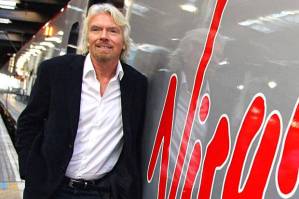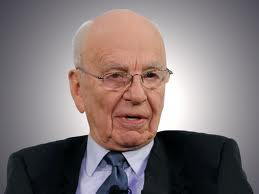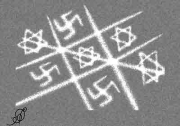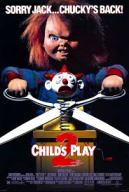This is when people look at the different types of media and how they affect our lives and who has influence on them (how they are run, and what people read).
There are many ways that information can be perceived and how they can be formated.
The mediums:
- Text
- Pictures
- Speech/Audio
- Video
- Music
- Art/Pictures/Graphics
The Format:
- Newspapers
- Radio
- Social Network
- Blogging/Video Blogging
- TV
- Mobile
The Tools/Distribution:
- Internet
- Cameras
- Disks
- Cable (Virgin Media)
- Games
- AM-FM
- Motion Picture
- DAB/ HD Radio
- Satellite (Sky)
These are things that can be split into many different aspects of the media:
Satellite:
BSkyB
International Satellite
Freesat
Cable:
Virgin
Internet:
Commercial Internet Broadcast
Public Internet
Amature Internet
Radio:
Commercial Radio
Public Radio
Terrestrial:
Analogue Terrestrial
Digital Terrestrial
There are many important people that run the business of the media sectors. For example Richard Branson and Rupert Murdoch.
Richard Branson
He was born in Blackheath London England UK
Branson was educated at Satcliff School, he had dyslexia and had a very poor academic performance even though he had a very privilege education. Although he is thought to have good people skills, which is very useful for when it comes to selling his products to people.
he started work in a record shop, and he also ran a “The student” which became an overnight success, which was sold for less than any over magazine on the highstreet, it also began to be sold under the name “virgin” (this was thought up by an employee at the time because they were all new to the business). earning enough money from the record store, in 1972 he launched the Virgin Record label. In 1992 he set up his own airline company, to compete with british Airways. Recently he sold his Virgin Label (record label), which was the main birth of his Virgin Empire.
What he owns:

- Virgin Atlantic Airlines
- Virgin Mobile
- Virgin Australia/Virgin America
- Virgin Trains
- Virgin TV (cable)
- He also own his very own Island
He sold his Virgin records so he could buy ITN, so that Murdoch would not be able to take it over, and make the news 66% of the news operation in Britain run by him, apart from BBC news (because it is run by the government). which would lead to a lot of controversy because everyone would have to follow his opinions on Government, politics and everything in-between.

Rupert Murdoch
He was born 11 March 1931 in Australia. Murdoch became managing director of Australia’s News Limited, inherited from his father, in 1952. He is the founder, Chairman and CEO of global media holding company News Corporation, the world’s second-largest media companies.
In the 1950s and ’60s, he controlled various newspapers in Australia and New Zealand, before expanding into the United Kingdom in 1969, taking over the News of the World followed closely by The Sun. He moved to New York in 1974 to expand into the US market, but always went back
to Australia and Britain. In 1981, he bought The Times, his first British broadsheet.
His News Corporation acquired Twentieth Century Fox (1985), HarperCollins (1989) and The Wall Street Journal (2007). He formed BSkyB in 1990 and during the 1990s expanded into Asian networks and South American television. By 2000 Murdoch’s News Corporation owned over 800 companies in more than 50 countries with a net worth of over $5 billion.
In July 2011 Murdoch faced allegations that his companies, including the News of the World, owned by News Corporation, had been regularly hacking the phones of celebrities, royalty and public citizens. He faces police and government investigations into bribery and corruption by the British government and FBI investigations in the US.
New Corporation:
These big corporations have to go through stages where they have to have there programmes and tv channels have to be checked, to see if they have followed certain guidelines and regulations. OfCom is one of the companies that enforces these regulations.
Ofcom is the main government-approved regulatory authority for the broadcasting, television and postal industries in the United Kingdom.
Here is some of the rules that they pass on, when it come to broadcasting (so this is when anything that is allowed to go on air, then all these things have to be taken into consideration):
- Broadcasting Code Guidance Notes: Section One – Protecting the under Eighteens.
February 2011
- Broadcasting Code Guidance Notes: Protecting the Under-Eighteens – Observing the watershed on television and music videos.
September 2011
- Ofcom Guidance – Offensive language on radio PDF Document
January 2011
- Broadcasting Code Guidance Notes: Section Two – Harm and Offence
February 2011
- Broadcasting Code Guidance Notes: Section Three – Crime.
February 2011
- Broadcasting Code Guidance Notes: Section Four – Religion.
February 2011
- Broadcasting Code Guidance Notes: Section Five – Due Impartiality and Due Accuracy and Undue Prominence of Views and Opinions.
March 2013 - Broadcasting Code Guidance Notes: Section Six – Elections and Referendums.
March 2013
- Broadcasting Code Guidance Notes: Section Seven – Fairness.
February 2011
- Broadcasting Code Guidance Notes: Section Eight – Privacy.
February 2011
- Broadcasting Code Guidance Notes: Section Nine – Commercial References in Television Programming.
February 2011
Audience Theories
The hypodermic theory (needle modal)/ Explains how the mass media might make reactions of audiences, who passively receive the information the information transmitted via a media without any attempt on their part of progress or challenge data, in other words, when people watch a certain type of programme they could possibly be used a idea or an order that people will have washed into their brains without then even realising, using the simplest media, for example in 1933 Hitler used the media to get his message across to population of Germany (children) that the Jews were bad, this was shown through cartoons and children’s text and story books.
Then in today’s society this isn’t very common because we have our own ideas of what things in the media to them, and how they interpret things. Which leads to fact that people can have a different perception of what they see which is common in todays
society.seeing sexual or violent behavior would lead to people copying the act. There was
 a serious case of this actually happening in Liverpool. Two boy abducted a little boy and reenacted the same scene from a film they had seen called “Childs Play”, it was horrible ordeal and was very shocking because at the time the boys were both only ten years old. this lead to the Government considering the percussions they were going to have to take for this not to happen again.
a serious case of this actually happening in Liverpool. Two boy abducted a little boy and reenacted the same scene from a film they had seen called “Childs Play”, it was horrible ordeal and was very shocking because at the time the boys were both only ten years old. this lead to the Government considering the percussions they were going to have to take for this not to happen again.
There are stages that the theories have to go through to see if they are suitable for them to be shown on air and how they can be interpreted and could be look at like this:
In 1948 Lasswell suggested that media text had to be the follow function for individuals and society.
Surveillance; this is when all media is appropriate for the whole of society and
transmission of culture ” surveillance of thelarger environment, achieving consensus among segments of society, and transmission of culture including validation of civil society values.so this is when themaid has to cater to what the public lives and what they want to know about them.
Correlation:This is when there is similarity of the public and how they watch TV and what they watch.
Entertainment: the media offers a large amount of entertainment and is very important in the society that we are living in now.
Culture transmission: There has to be a wide range of culture to be shown on all TV because it could be show all over the world.
Types of media companies
Public media service: BBC
Multinational: Sony (Global)
Independent: Talkback (Specifics Companies)
Conglomerates: Time Warner (Owns many companies)
Horizontal Integration:
Companies that are run (Buys) different products that are similar to its current product. this is when a company focuses it attention on one types of service, so in other terms it means when there is a expansion involves duplication of the current model.
Vertical Integration
Companies that buy other companies of different products that are different (may not be related) to it current product.
Diversified Integration
This is when companies that buy products board based of service and issues that many are unrelated
They can look at different terms that would help them buy the other companies, for example How they would work together? and what jobs would it offer for them?